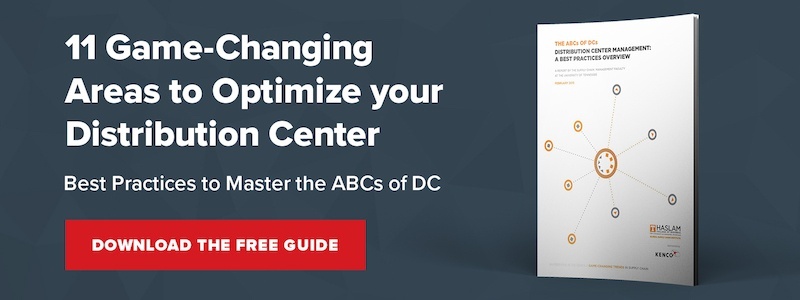
Sustainability isn’t just a buzz-word anymore – it’s an essential component of success for a third-party logistics company.
Industry leaders are not only great at what they do, they are also committed to lowering their environmental impact and offering newer and better solutions to keep up with customer and consumer demands. Across the industry we are seeing some great examples for how to incorporate a focus on sustainability into a successful business model, including a trending toward value-added services. Now not only can Sustainability be free, as stated by Dr. Dale Rogers, but it can enhance a business segment while adding newly found revenue.A catch-all term for any service provided outside the scope of the typical offerings from a third-party logistics provider, value-added services are icing on the cake for companies looking for ways to maximize efficiency in getting their product to their customer. Although most of these 3PL services were created to save the customer money by outsourcing certain intricate or technical tasks, value-added services can actually serve a valuable dual role for many logistics providers by tying neatly into their sustainability efforts.
Here’s a look at some of the most commonly offered value-added services and their benefits both for business and the environment:
Reverse Logistics
Sometimes called life-cycle management or asset recovery management, reverse logistics is a service where the logistics company salvages raw materials or recycles a product after it has been received by the consumer. Sometimes, reverse logistics can also involve basic repairs on items returned from a consumer.
The core goal of reverse logistics is to give the original producer the cost-saving benefit of harvesting reusable materials from used products; however, there is a bonus environmental benefit to recovering and recycling these items - preventing them from ending up in landfills. Not to mention, if a logistics company can do simple repairs at a nearby facility rather than shipping an item to the original producer cross-country, consumers are happier with their wait-time and the lack of shipping cuts down on fossil-fuel emissions / GHGs. A win-win situation.
Cross-Docking
One of the most commonly offered value-added services, cross-docking, usually involves configuring your warehouse’s docks for incoming freight to immediately transfer materials onto outbound trucks or having a temporary, easy-to-access storage space for freight. Not only does cross-docking lower shipping times and warehousing costs, but it also cuts down on warehouse space needed. Offering cross-docking services can cut down on the energy consumption of your warehouses associated with storing, especially with cold chain products.
Postponement Packaging
Many logistics companies offer last-minute set-ups or configurations of items that are easier to ship disassembled or with minimal packaging. Postponement packaging reduces the size of items transported, allowing more products to be transported per load and warehoused. This service saves your customers money on time, labor, and shipping and warehousing costs. Offering postponement packaging will cut down on your fleet’s carbon emissions and the need to acquire and power additional warehouses.
Integrated Warehousing and Distribution
When logistics companies have both warehousing and distribution in mind and united on the same IT system, an entire 3PL runs more efficiently and with more conversational transparency. Some IT systems even have ‘track and trace’ features, which allow consumers to follow their product from the original producer until fulfillment. These sorts of systems also allow for sequencing, a process where a 3PL can easily transport and deliver products in the correct build order, just in sequence, for manufacturers or other companies. Having the big picture in mind can impact your sustainability goals and your competitive edge by reducing costly inefficiencies, such as dead-heading, additional transport, and energy spent on heating or cooling unused space.
The bottom line is:
Successful relationships between third-party logistics providers and their clients requires a spirit of innovation and collaboration. Value-added services represent the best of creative efforts to optimize efficiency, reduce costs, and lower your environmental impact. It is said to be a business that is the most progressive and prosperous, it must know what its customer needs before its customer does.



